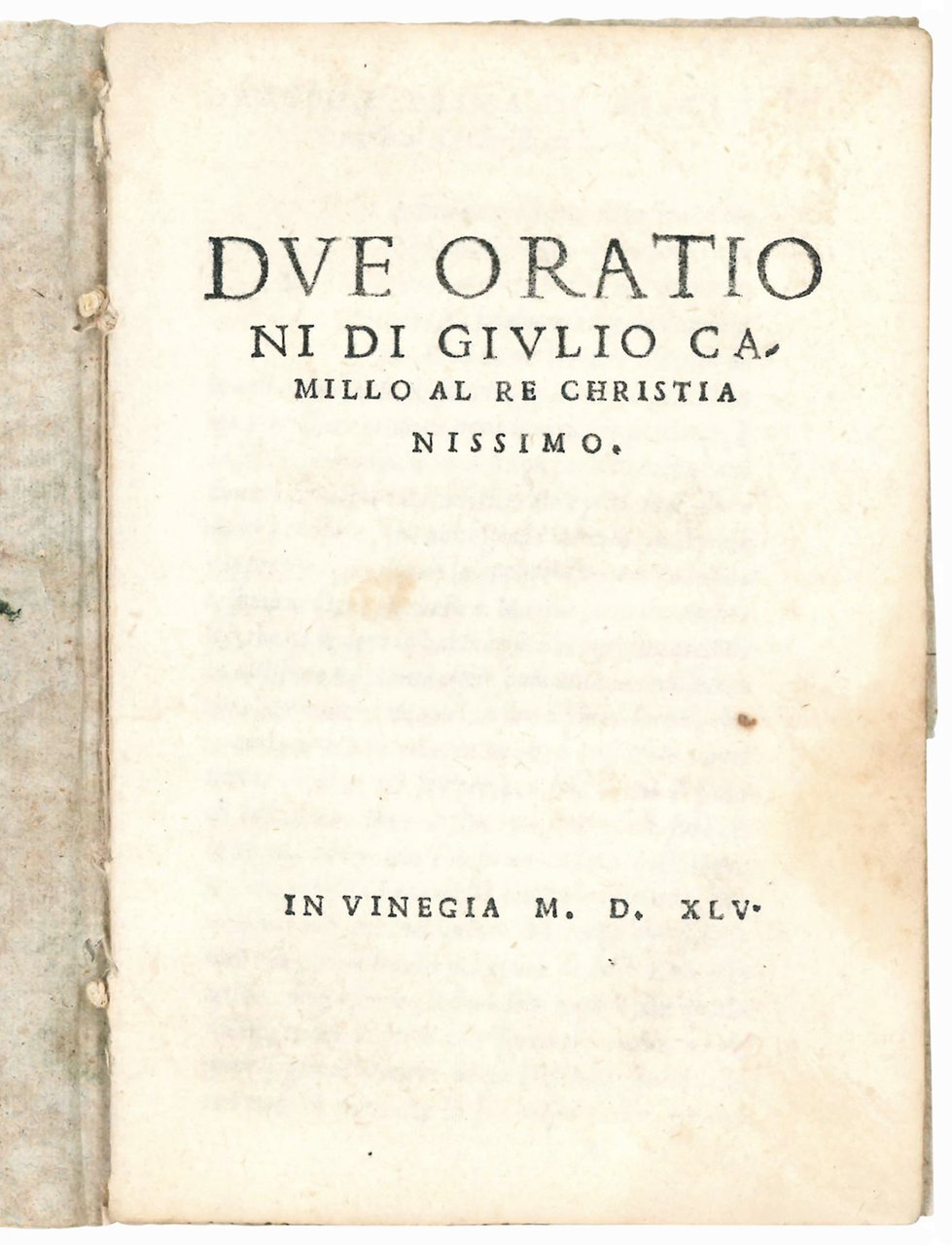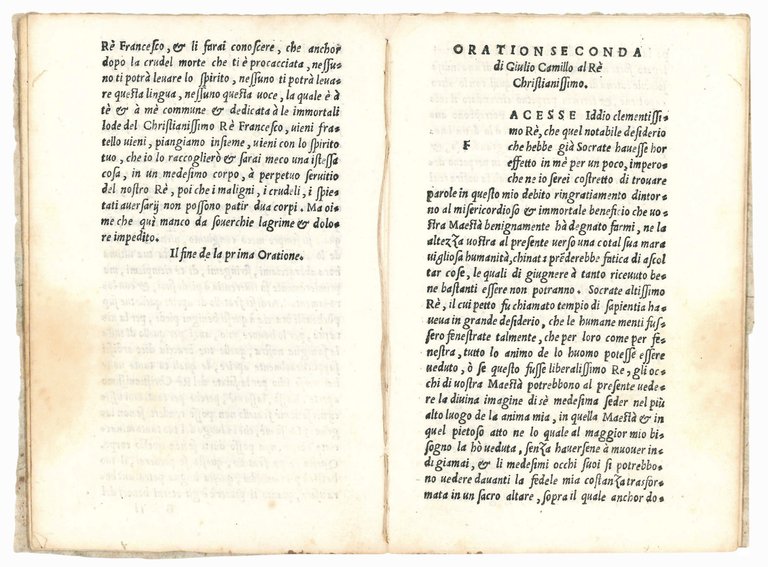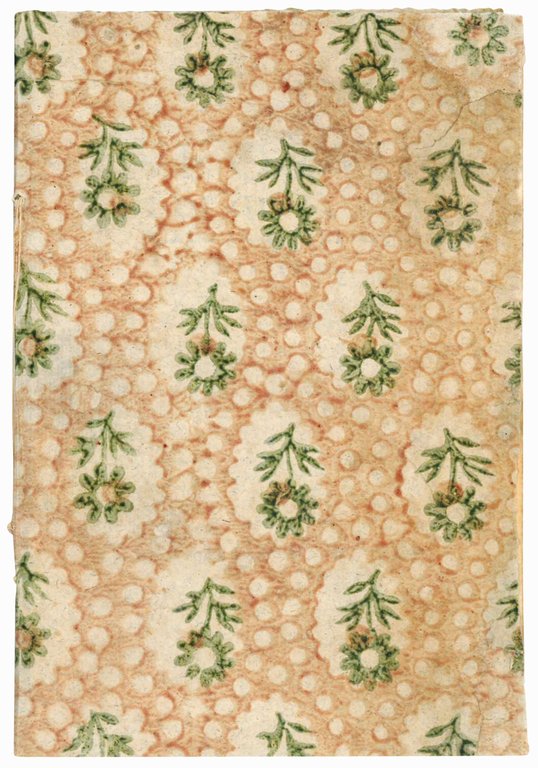


Rare and modern books
CAMILLO, Giulio (1480-1544)
Due orationi di Giulio Camillo al Re Christianissimo
n.pr., 1545
900.00 €
Govi Libreria Antiquaria
(Modena, Italy)
The correct shipping costs are calculated once the shipping address is entered during order creation. One or more delivery methods are available at the Seller's own discretion: Standard, Express, Economy, In-store pick-up.
Bookshop shipping conditions:
For items priced over €300, it is possible to request an instalment plan from Maremagnum. Payment can be made with Carta del Docente, Carta della cultura giovani e del merito, Public Administration.
Delivery time is estimated according to the shipping time of the bookshop and the courier. In case of customs detention, delivery delays may occur. Any customs duties are charged to the recipient.
For more infoPayment methods
- PayPal
- Credit card
- Bank transfer
-
-
Find out how to use
your Carta del Docente -
Find out how to use
your Carta della cultura giovani e del merito
Details
Description
Allegedly first edition (in the same year they were printed also by Vincenzo Valgrisi) of these two orations addressed to King Francis I. The first was written to ask for the liberation of the Carmelite theologian Giambattista Pallavicino, imprisoned for a year for bad preaching, and the second was a thanksgiving for his release. Both were recited by Pallavicino's brother, Cosimo. The orations were later included in Camillo's collected works, which first appeared in Venice in 1552 (cf. G. Stabile, Camillo, Giulio, detto Delminio, in: “Dizionario Biografico degli Italiani” vol. 17, Rome, 1974, s.v.).
In 1534, Giambattista Pallavicino (b. 1500) was at the court of Francis I and delivered a Lenten sermon in Paris. The situation precipitated when the pope's emissaries intercepted a letter in which the Carmelite congratulated the King of England, Henry VIII, on freeing himself from the yoke of Rome. Clement VII ordered Francis I to arrest him and, after some resistance, the king agreed in July 1534, imprisoning him in the Bastille on charges of preaching against the Eucharist. This decision was likely related to the hardening of the king towards the Protestant message. Indeed, following the ‘Affaire des Placards' in October of that year, Francis I reportedly launched a bitter anti-Protestant campaign. In collaboration with the intransigent faction led by Cardinal François de Tournon and Constable Anne de Montmorency, he gradually isolated the circle of Margaret of Navarre and the evangelicals. Thanks to his brother Cosimo, Pallavicino had come into contact with these figures during his first stay in France. There, he had also befriended two leading figures of religious dissent in those years: Alessandro Citolini and Giulio Camillo. In an attempt to secure his brother's release, Cosimo delivered before Francis I two orations that his friend Camillo had composed. Evident heterodox echoes shine through in these texts, which appeal to Christian charity, forgiveness, and the merits of Christ. They would be published in Venice in 1545 after the author's death. The orations convinced the sovereign to change his mind: on 28 June 1535, Francis I granted a substantial pension to the preacher and by July 15 Pallavicino was already free (cf. C. Quaranta, Pallavicino, Giambattista, in: “Dizionario Biografico degli Italiani, vol. 80, Rome, 2014, s.v.)
Giulio Camillo Delminio was born about 1480 at Portogruaro or near San Vito di Tagliamento in Friuli. He studied at Venice and Padua. During Erasmus' visit to Italy (1506-9) he sometimes roomed with Camillo. Before 1520 he taught at San Vito and Udine and about 1521-3 at Bologna. In these years of teaching, Camillo began designing a wooden theatre to provide a setting for the orator practising the ancient art of memory. Absorbed in perfecting the design for the theatre, Camillo travelled feverishly for the rest of his life; he is found at Padua, Genoa, Venice, Portogruaro, San Vito, Gemona in Friuli, Bologna, Rome, Milan, and Pavia. In 1530 he journeyed to France with his friend Girolamo Muzio and secured the patronage of King Francis I. Camillo received additional grants to complete the theatre on his return to France in 1533 or 1534. Thereafter, although Camillo visited France at least twice more, Francis I began losing interest in the unfinished project. In 1544 Camillo found a new patron in Alfonso d'Avalos, Marquis of Vasto, the Spanish governor of Milan. For the maquis he dictated to Muzio L'idea del theatro, which, like all his other works, was published posthumously in 1550. In addition to the Due trattati, the Idea, and Due orationi al re christianissimo, which first appeared separately, other works were collected in the frequently augmented and reprinted editions of Tutte le opere. The Opere, edited first by Ludovico Dolce in 1552, also

